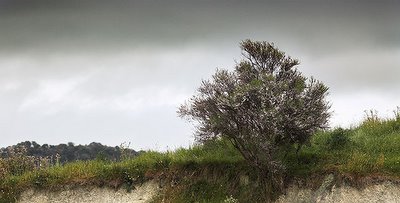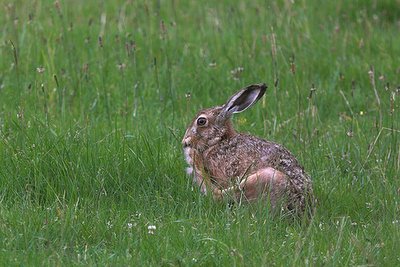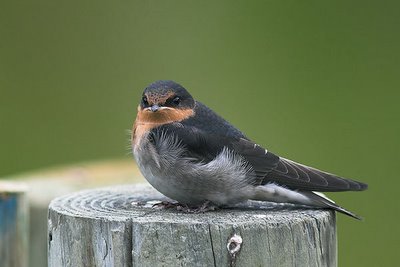 A few years ago a friend told me how, before travelling overseas, she always imagined dying on the journey. As I was about to travel overseas I took this as encouragement because she’d travelled overseas—extensively—and still hadn’t actually died; I also found it encouraging because I was imagining the same thing—my dying, that is; not hers. As far as I’m aware, we’re both still alive, but I was intrigued to discover recently that we were in famous company:
A few years ago a friend told me how, before travelling overseas, she always imagined dying on the journey. As I was about to travel overseas I took this as encouragement because she’d travelled overseas—extensively—and still hadn’t actually died; I also found it encouraging because I was imagining the same thing—my dying, that is; not hers. As far as I’m aware, we’re both still alive, but I was intrigued to discover recently that we were in famous company:
“...as with all long trips,” writes Paul Theroux in Dark Star Safari, “I fantasized I might die there.”
Given how Theroux described some of the people he encountered, I’m sure many wished he had died, but that’s beside the point. Theroux, my friend, and I are about as different in many respects as you’re likely to find among people from affluent, western countries, yet the idea of dying on a journey overseas united us in a way that seemed more than coincidental. This seemed significant despite my general scepticism about coincidence. I began to wonder whether the idea or fantasy is ubiquitous among those about to undertake (an appropriate word) a significant journey, and if so, what prompts it.
Perhaps, I thought, it’s just the realisation that you’re about to leave the comfortable, geographically located place you call home and it will be months or even years before you return—if you ever do. In a flash of insight which quickly proved erroneous, I thought I had a way to test this hypothesis. If it’s as simple as that, then homeless people—and here I’m thinking of home as a much wider concept than as a place—should be much less likely to find themselves fantasizing about dying on a long journey. The problem, of course, is that if you have no home—if you never feel at home—you can’t leave it to go off and die. While my beautiful hypothesis hadn’t been slain by an ugly fact [1], my elegant test had been bumped off by brutal logic.
That got me thinking about two things: the concept of home, and the way science works. Later, I thought about how ideas lead to other ideas; how connections form among ideas. Thinking about thinking, I suppose. Perhaps you could call it metathinking, although I suspect many people would call it confused thinking—not metathinking but messy thinking. By that stage, I was hopelessly confused, so I returned to my original thought, which, it turned out, I’d forgotten. I gave up; abandoned thinking and went for a walk up the No. 1 Line track instead.
I drove up the winding, gravel road, past hay fields where wind swirled shimmering patterns in the long grass—the air apparent to the eye. A kahu [2] twisted and bounced in the turbulent sky, soaring over the hay field, over gullies filled with rushes and thistles and flowering manuka, circling behind a row of unkempt pines and macrocarpas that writhed in the gale. On to where the road narrows, squeezed rough and lumpy between the high bank and a series of washouts that plummet down the steep, scraggy hillside. I opened the gate at the road-end and looked up when a movement caught my eye.  On the track ahead, a hare stopped, turned, half-crouched, and looked back at me. I froze, thinking then forgetting about the camera in the car. We looked at each other for several seconds; me caught up in the moment, the hare probably close to freaking out. Finally it jumped from the track to the slope above and disappeared into a thicket of long grass and Californian thistles.
On the track ahead, a hare stopped, turned, half-crouched, and looked back at me. I froze, thinking then forgetting about the camera in the car. We looked at each other for several seconds; me caught up in the moment, the hare probably close to freaking out. Finally it jumped from the track to the slope above and disappeared into a thicket of long grass and Californian thistles.
By the time I’d reached the pepperwood zone I’d begun to think again about home, and what it means. Some time ago I’d suggested that home was where you could die without wishing you were somewhere else. I’d said it half-jokingly, but later recognised it was probably truer than I’d realised. If you think of home as a place, the definition fits well; if you think of it as a circumstance, a situation—being with the people or person you love, for example—it fits just as well. Where it fails is that it’s not actually a definition. It enables you to recognise when you’re at home, but it doesn’t tell you why you feel that way. It’s possible, for example, to be with someone you love and yet not feel at home, or vice versa; it’s possible to feel at home in a place you’ve never been before, with people you’re meeting for the first time, and yet you feel at home.
I remember catching the end of a radio interview with Doris Lessing; I was driving home in the evening and turned the car radio on too late to hear more than the last few minutes.
“My home now is in literature,” she said. “All my other homes—all the places I’ve lived—have gone now.”
What she said seemed to confirm for me that home is not a product of geography—at least, not solely—and it reminded me that while my semi-serious suggestion focused on dying as a way of defining home, another, more positive way to think of it is that it’s where you live. Live: in the nontrivial sense—and if I have to explain that, then you’re already dead.
 Where the track levels out, not far from where it becomes indistinct—where it could be over there or that way or perhaps straight ahead, and at last you realise you’re no longer on it—I stopped and rested. Grey, wild cloud scudded overhead; occasionally a break revealed a small, powerless patch of blue sky, bright and hopeful before being overwhelmed. The dense, head-high vegetation protected me from the worst of the wind, and I pottered about, nibbling a muesli bar, peering at tiny orchids growing from cracks in long-dead stumps, wondering if I’d be lucky enough to see a falcon arrowing overhead, skimming the canopy. Sunlight lit a distant ridge then vanished. I felt at home, and couldn’t care less about wondering why. I still don’t know why the prospect of travelling seems to foster thoughts of dying, but the thought did occur to me that the longest journey we ever make begins when we first become aware of who we are. At that stage of life, no one fantasises about dying on that journey, yet it’s the only one on which it’s certain we will.
Where the track levels out, not far from where it becomes indistinct—where it could be over there or that way or perhaps straight ahead, and at last you realise you’re no longer on it—I stopped and rested. Grey, wild cloud scudded overhead; occasionally a break revealed a small, powerless patch of blue sky, bright and hopeful before being overwhelmed. The dense, head-high vegetation protected me from the worst of the wind, and I pottered about, nibbling a muesli bar, peering at tiny orchids growing from cracks in long-dead stumps, wondering if I’d be lucky enough to see a falcon arrowing overhead, skimming the canopy. Sunlight lit a distant ridge then vanished. I felt at home, and couldn’t care less about wondering why. I still don’t know why the prospect of travelling seems to foster thoughts of dying, but the thought did occur to me that the longest journey we ever make begins when we first become aware of who we are. At that stage of life, no one fantasises about dying on that journey, yet it’s the only one on which it’s certain we will.
Notes:
1. T.H. Huxley: "The great tragedy of science—the slaying of a beautiful hypothesis by an ugly fact".
2. Australasian harrier; Circus approximans.
Photo 1: Manuka (Leptospermum scoparium); Pohangina Valley. Just down the road.
Photo 2: Not the No. 1 Line hare (Lepus europaeus occidentalis). This one lives in the Wairarapa, next door to where I enjoyed New Year's eve, which was when I photographed him/her.
Photo 3: Welcome swallow (Hirundo tahitica); juvenile.
7 comments:
Interesting about the sense of home you describe. There was a poem today here that I found more interesting after reading your post.
I understand what Lessing, as well as you, are talking about. The more I write the more I am. I'm at home. (And I feel at home here on your blog too).
Have you read Abram's The Spell of the Sensuous? The concept of home made me think about Abram's chapter "Exiled in the Word" where he talks about alphabetic writing, the written text serving as a kind of "portable homeland" or "portable ground."
Thanks for the link to the poem, Tracy. Some interesting metaphors and juxtapositions there. I'm delighted you feel at home on the blog, too; it's quite a compliment.
And Brenda, no, I haven't read Abram's book. Thanks; I'll see if I can check it out at the library next time I'm in town. I need a good book to read; I finished Dark Star Safari and Jenny Diski's Skating to Antarctica in quick succession and am casting about for a good read, so your timing's great.
Good to hear from you both :^)
you'll always be an inspiration, Pete.
See you soon,
Do.
Thanks Do! See you guys this evening :^)
After my trip to the Antarctic I stayed on with a small group to visit some of the Chilian Patagonia. While in the airport in Punta Arenas, waiting for some flights to get straigtened out I fell into conversation with another one of the travelers. Mary, an older woman, had traveled extensively with her husband after their retirements, and as it turns out her husband did die on one of their journeys. On a bus in India, he said he wasn't feeling well, put his head down and died.
This story came on the heels of my wife, Janice's death, and only a couple of weeks after I had scattered her ashes in Kauai on another journey. Mary and I shared a cry standing there in that airport. And we stayed close the rest of that trip, our partners journeys cementing a bond on our journey.
Clare: Something I've learned from experience is that one of the greatest comforts is to be able to comfort another. I'm glad you and Mary were able to share your grief with each other. Glad too that you have new joy in your life: long may it remain with you all.
Post a Comment